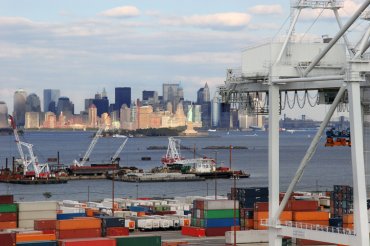CHICAGO- Political, environmental and regulatory issues are working together to shape the industrial lubricants landscape near- to mid-term, according to a presentation given by Kline and Co. at the ICIS North American Industrial Lubricants conference held here. Factors such as Marpol anti-pollution mandates, chlorinated paraffins and lawsuits aimed at reforming the way businesses and governments address climate change are listed as having the greatest potential impact on the industry.
Developed through the United Nations International Maritime Organization and enforced by member nations around the world, Annex VI of the Marpol Protocol VI was developed in 1997 and revised in 2008. The regulation aims to reduce ships emissions of pollutants such as nitrous oxides, sulfur oxides and volatile organic compounds, in some cases by capturing them from exhaust and in others by reducing amounts of chemicals such as sulfur in marine fuel. Sulfur limits for some ports and coastal areas was reduced to 0.10 percent in 2015. The cap for other areas is scheduled to decrease from 3.50 percent to 0.5 percent in January 2020..

Photo: jml5571/iStock
Announced in June of 2011, Marpol VI was confirmed in October 2016 and will lead to significant changes in marine fuels and lubes formulations.
The sulfur limit affects the lubricants industry because marine engine cylinder oils are added to fuels. Michael Kochanek, manager at Kline, believes the 2020 sulfur standard is not only guaranteed to happen, but will significantly impact the industrial lubricants market. With less sulfur in the fuel, lower total base number lubricants will be needed, said Kochanek. There is a clear cause and effect on marine engine oil specifications, which has a direct impact on formulations.
Kochanek also predicted regulations on chlorinated paraffins to have a large impact, though he is uncertain if the strict regulations, and potential ban, put forward by the Obama Administration will be carried out. In April 2017 the EPA gave the industry 5 additional years to run more tests on the toxicity of medium- and long-chain chlorinated paraffins. In June the EPA entered into consent orders, allowing three companies to manufacture and import a range of chlorinated paraffins.
Its uncertain whether or not in five or seven years [chlorinated paraffins] will still be allowed in metalworking fluids or if they will be outright banned, said Kochanek in an interview. Should these additives be labeled as toxic and banned, metalworking fluid formulations would see significant changes.
While alternatives are available, formulators will likely experience growing pains if forced to switch, Kochanek explained. Chlorinated paraffins as the most cost effective extreme pressure agent, so an alternative is likely to impact not only the formulation but the price of products.
Chlorinated paraffins are chlorinated alkanes with carbon chain lengths ranging from 10 to 38 with varying degrees of chlorination. They are typically used in metalworking fluids as extreme pressure agents, particularly in removal operations, drawing and forming.
The most uncertain factor, however, is judiciary climate change reform, as the outcomes of cases filed against the industry are unknown at this time. Kochanek highlighted a few major cases at the conference.
The first is Juliana v. U.S., which has the potential to set a precedent for climate change policy. climate scientist James Hansen and 21 youth plaintiffs are suing the U.S. government, alleging the government permitted and encouraged increasing carbon emissions over the past 50 years despite knowledge of negative repercussions.
Similarly, two counties and a city in California recently sued 37 fossil fuels companies for funds to cover the costs associated with higher global temperatures. The cases claim the industry knew and concealed the dangers the companies products had on the environment.
The uncertainty [of the outcome] is so broad that its hard to quantify or really assess all the different things that could happen. There could be a major shakeup in the landscape in terms of who the players are, noted Kochanek.
These cases may change the playing field completely, leading to higher prices throughout the industry supply chains, with stricter environmental regulations. I dont know what the potential outlook could be for the oil and gas industry, but it could affect [the industry] from extraction to refining said Kochanek. It doesnt mean that lubricant demand is going away, it just might mean that the players operating in the space will likely change, he added.